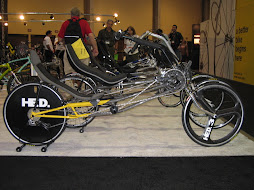Friday, February 27, 2009
An example
Here is a perfect example of how NOT to stimulate the economy. Just as the Japanese government is faced with falling tax receipts, and drastically increasing costs with an aging population, they do something as stupid as THIS and reduce the cost of driving presumably to encourage people to drive more which no doubt would have some overall effect on an economy. The rational is perhaps that if the export market is tanking we should stimulate domestic demand. But this fails to recognise two things: (1) Japanese do not traditionally buy the same things they export, nor is it necessarily a good thing to try to make them do so, and (2) there may be a very good reason that foreign countries are cutting back on their imports of these items, and stimulating demand domestically will just put Japan well behind the curve in terms of adapting to the changing world. This is a very great pity, because Japan has traditionally been ahead of the curve in its focus on family, lifestyle and culture over purely economic factors. But the pointy heads seem to have forgotten that efficiency in an economy is not simply the efficiency with which we can create crap that other people will buy - no. Efficiency at the national level is what matters. Indeed efficiency at a global level may be required to meet environmental targets, but it is national efficiency that is increasingly important for a country wishing to be competitive. And when it comes to transport systems, nothing is more efficient than rail (and the high-density cities that come with it, thus walking and cycling, which add further efficiencies by improving the health of the population, not to mention the land use efficiency when cities dependent on motor transport find a quarter or third of their land devoted to the automobile). This is why I find news like this- that the Japanese government would subsidize driving at a time like this extremely disappointing.
Subscribe to:
Post Comments (Atom)


No comments:
Post a Comment